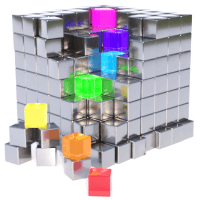“Thrift is poetic because it is creative; waste is unpoetic because it is waste.” -GK Chesterton
Have you examined your level of waste on an emotional, physical, spiritual, and mental plane? I believe our level of waste can be directly tied to our level of unhappiness. When you’re living in waste, you’re missing out on a poetic story.
A few examples: if you’re constantly swimming in the same old emotional trauma, then you’re living in waste. If you’re facing that trauma head-on and working through it, that’s a beautiful story. If you’re getting further in debt to buy stuff you don’t need, then you’re living in waste. If you pinch pennies for a year to pay cash for that one thing you have longed for, that is a great story. If you consistently buy too much food and end up throwing it out, you’re living in waste. If you with gratitude consider your resources and only buy and prepare what you can use, that is a poetic story.
I invite you to start considering the ways in which you waste and why you waste. The waning moon is a powerful time to do this!
Letting Go
There is a large movement towards a lifestyle of chosen simplicity, which is known as minimalism.
Minimalism encourages and helps people question and be mindful about things that actually add value and worth to their lives. And whatever doesn’t, you are invited to let it go in a responsible way.
Those are two very simple and straightforward tenets of minimalism: 1) figure out what adds real value and worth to your life 2) whatever doesn’t, get rid of it. The idea is that as you clear out physical clutter it allows you to see your emotional clutter with more clarity and it allows you to make room and time for the most important aspects of life, things that create story - like relationships, your health, and contributing to your community.
When we unnecessarily hold onto stuff it always costs us something - and I don’t mean just the initial financial investment. It may also cost us the freedom of being without debt. It costs us the time and energy spent organizing and contemplating on it - because the more stuff we have, the more time we have to devote to it. And if it’s something that doesn’t add any value or worth to our lives, then it also costs us some level of integrity because we’re not being honest about what we really need or what really brings us true worth.
Conscious Acquiring
The process of being deliberate about what we bring into our space sets a pattern and helps us to look inside and ask questions about what we are bringing into our minds and hearts.
Just consider for a moment the question at the heart of minimalism and apply it to your thoughts: What am I housing in my mind right now that adds value and worth to my life? If it’s not bringing value and worth then it’s waste. And waste is unhappiness.
Just like external things, every unnecessary thought is costing us our time and energy, our freedom, and our integrity. It’s time and energy spent ruminating on those thoughts when it could be spent on creating, considering ideas, and thinking of others. It costs us the freedom to feel love and peace and to extend that love and peace to those around us. And finally, it costs us the integrity of misaligning ourselves with thoughts that are not honest, which leads to feelings that are not honest, which leads to behavior that is not honest.
Our quest to live a poetic story requires a constant pursuit of what is actually honest, deliberately working through whatever is not, and letting go of the waste. This is emotional thrift and it’s beautiful. It’s poetic. We cannot connect with our true selves and we can’t connect with others if we don’t have the desire or ability to do this. Notice I didn’t say we must be 100% emotionally healthy to experience connection. If that were the case, it would never happen. Rather, we must be honest enough to see our stuff and committed enough to be working through it in an authentic way. That honest discovery of our own humanity lets us see and connect with the humanity in others.
Part of pursuing truth and letting go of waste is realizing which things we have control over and which things we do not. It can be tough to recognize that our own internal choices and beliefs are the only things we can truly control. But the good news is that our internal work is what really creates our story.
Summary
So to start : 1) Decide what things (both internally and externally) add sustainable value and worth to you life. 2) Whatever doesn’t, figure out how to let go of it. What will that take? We are not obligated to anything that does not bring value and worth and truth to our story.
